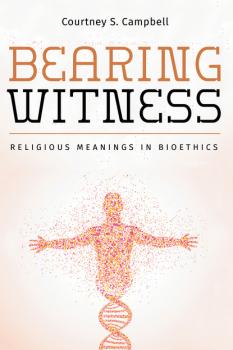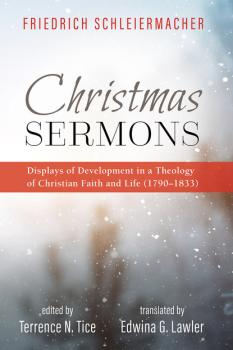ТОП просматриваемых книг сайта:
ЛИТМИР - LITMIR.BIZ - Электронная библиотека
Скачивание или чтение онлайн электронных книг.Аннотация
The problem with too much Christianity today is that we replace the person of Jesus with a doctrine of grace. Living in denial of Jesus' teaching on judgment and holiness, too many Christians take refuge from the sayings of Jesus in doctrines of forgiveness that they hope will bolster up their sense of self-worth before God. Andy Angel tackles this dysfunctional spirituality head-on, opening up the journey of learning and love into which the living Lord Jesus invites us all. Unpacking the Gospel of Matthew, he encourages us to rediscover the teaching ministry of Jesus in our own lives, and in doing so, to recover the riches and freshness of the gospel message and to rediscover the depths of love Jesus has for each one of us.
Аннотация
The contemporary church's debate on the inclusion of same-sex individuals and their relationships has devolved into diametrically opposed positions. Rather than resolving the argument, the conversation between the two sides reflects the impasse that is taking place in denominations across the West. It is clear that the dispute cannot be resolved while couched in these terms.
In this timely work, Steven Schafer invites the reader to move beyond the terms of the current debate toward the underlying doctrinal concerns so often glossed over by that discussion. This book is a work of hermeneutics that engages the contemporary discussion on the legitimacy of same-sex relationships with the grand theological narrative handed down by the church. By placing four contemporary revisionists in dialogue with the work of Augustine, the book provides language and theological avenues to reframe the debate and contributes to the church's ongoing discernment.
In this timely work, Steven Schafer invites the reader to move beyond the terms of the current debate toward the underlying doctrinal concerns so often glossed over by that discussion. This book is a work of hermeneutics that engages the contemporary discussion on the legitimacy of same-sex relationships with the grand theological narrative handed down by the church. By placing four contemporary revisionists in dialogue with the work of Augustine, the book provides language and theological avenues to reframe the debate and contributes to the church's ongoing discernment.
Аннотация
In Bearing Witness, Courtney S. Campbell draws on his experience as a teacher, scholar, and a bioethics consultant to propose an innovative interpretation of the significance of religious values and traditions for bioethics and health care. The book offers a distinctive exposition of a covenantal ethic of gift-response-responsibility-transformation that informs a quest for meaning in the profound choices that patients, families, and professionals face in creating, sustaining, and ending life. Campbell's account of «bearing witness» offers new understandings of formative ethical concepts, situates medicine as a calling and vocation rooted in concepts of healing, affirms professional commitments of presence for suffering and dying persons, and presents a prophetic critique of medical-assisted death. This book offers compelling critiques of secular models of medical professionalism and of individualistic assumptions that distort the physician-patient relationship. This innovative interpretation bears witness to the relevance of religious perspectives on an array of bioethical issues from new reproductive technologies to genetics to debates over end-of-life ethics and bears witness against the oddities of a market-oriented and consumerist vision of health care that is especially salient for an era of health-care reform.
Аннотация
The Addison Collection provides thoughts and observations designed to encourage us to think about philosophical, social, and political issues of interest. "It's a Buck" describes a teenage boy's thoughts and feeling while experiencing the initial frustrations and then unexpected rewards of being a first-time, successful deer hunter. «Retreats of Stones and Mosses» is a short story about a population of tiny minnows that find and experience a temporary utopia in their country stream. It illustrates how an absence of daily challenges, which are found in a mainstream environment, can lead to apathy and prolonged despair. «Space Visitors» involves aliens who arrive on Earth and provide insight on our perception of time and space travel. They state that the emphasis we place on an ideal life in the hereafter shouldn't cause us to overlook the importance and beauty of contemporary life. The treatise, «Our Model Nation,» suggests that the basic values and character of America serve as a forerunner to how the world of the future will be structured. It addresses issues specific to crime and punishment, threats of aggression, natural vs. institutional government, and social destiny. The reader should find this collection interesting, enjoyable, and thought-provoking.
Аннотация
This book describes the sociocultural context that shaped Christian initiation for many early Jamaican congregants within the African Methodist Episcopal (AME) Church. Christian initiation in early-twentieth-century Jamaican AME churches included the practice of two water rituals for children within most of its congregations–first, the christening or sprinkling of water on infants, and second, immersion when the child reached the age of consent and made a public confession of faith. The ambiguity of John Wesley's doctrine and practice of the sacrament of baptism are provided with the cultural milieu of nineteenth- and early-twentieth-century Jamaica to allow the reader to calmly consider the spectrum of evidence–and consider how the use of two water rituals became normative for many disciples of Christ to become full members within the early AME Church in Jamaica.
Sermons by Jonathan Edwards on the Church, Volume 1 - Группа авторов
The Sermons of Jonathan EdwardsАннотация
In April 1740, Jonathan Edwards, minister of Northampton, Massachusetts, preached a discourse on Hebrews 12:22-24 comprising eight sermons. At this point, he had been the senior pastor of that town for just over a decade, and had seen his congregation through the historic Connecticut Valley Awakening of the mid-1730s, when several hundred souls were reportedly savingly converted. This first volume of Sermons by Jonathan Edwards on the Church contains the previously unpublished Hebrews discourse, «Christians Coming to Mt. Zion,» preached on the very cusp of the transatlantic religious movement that would become known as «The Great Awakening,» the New England phase of which began later that year. In addition to the complete and original text of Edwards' discourse, the volume includes two introductions that describe his preaching style and method and provide an historical context.
Аннотация
Twenty-first-century Protestantism is radically different from the Protestantism of the Reformation. The challenges of modernity affected all aspects of Christianity and the more successful attempts to combat these challenges came about as a result of two rather different yet similar theologians in the nineteenth century. This work provides an exhaustive look at Friedrich Schleiermacher, the father of modern liberal Protestantism, and Phoebe Palmer, the mother of the Holiness movement. The trend of liberalism is to strip away all but what is essential to Christian life, while the Holiness movement sought to make all of life applicable to the Bible and God. While these two movements may appear contradictory, they are grounded in a shared source of experiential Protestantism, commonly known as Pietism, and develop their theological systems from this starting point. This study includes not only their theologies, but also biographies that introduce the reader to these two luminaries. Liberalism and holiness, as created by Schleiermacher and Palmer, lay the foundation for Pentecostalism, fundamentalism, neo-orthodoxy, and the interdenominational movements of the nineteenth century. Only from this vantage can we understand the modern Protestant mindset.
Аннотация
Christians have always looked to models within the Christian faith to guide their lives. At a time when the church is more identifiable by ugly partisan politics–what we call «crappy Christianity»–than by compassionate neighbor love, this book highlights the lives and work of seven individuals who are pursuing their Christian calling in humility and profound love for and service to others, this book highlights the lives and work of seven individuals who are pursuing their Christian calling in humility and profound love for and service to others. Their commitments have led to vocations in working with homeless women, employing refugees, lobbying on Capitol Hill for environmental protection, healing trauma in urban communities, peacemaking in Israel-Palestine, advocating for immigrants, and walking alongside people in addiction recovery. Their individual and collective witness offer compelling examples of authentic Christian life, which is marked in part by active, embodied faith in pursuit of the common good; a broad and inclusive love for all people; rightly ordered political identities and loyalties; and a commitment to work toward holistic redemption of both people and the systems that constitute our life together. In contrast to much of contemporary American Christianity, these models of faith demonstrate that Christians should focus much more on what we are for rather than what we are against.
Аннотация
New discoveries arise alongside memories in every Christmas sermon that Friedrich Schleiermacher (1768-1834) ever delivered. This book invites readers into an informed experience of Christmas through eleven sermons. In these pages readers watch Schleiermacher lay discovery and memory side by side, because this is how his own famed systemic theological views of Christian faith and life developed throughout his life. These sermons evoke first curiosity then wonderment at the prospects reading can open. For Schleiermacher, Christmas was always a special time to engender such experiences–a time to survey different vistas of Jesus' birth and career. Schleiermacher lived when the modern age was being born. He contributed substantially to that birth and to the health of modern times. His sermons collected here display the main theological grounds for his worldview, which is still quite timely today.
The Visible Shape of Christ's Life in Us - Группа авторов
Wycliffe Studies in Gospel, Church, and CultureАннотация
How can we live in the world without falling either to the dangerous pitfalls of Christian legalism or the lure of unbridled hedonism, especially in a generation that rejects most formal expressions of Christianity? Saint Paul suggests that there is only one way–to walk in step with the Spirit, while bearing the fruit of the Spirit in our daily lives. Because this is a daily process, one fraught with success and failure, the following volume of essays seek to articulate how the Christian can prepare themselves for life in the Spirit, following Paul's admonition to «keep in step with the Spirit» (Gal 5:25) as we move closer and closer to meeting our Lord. The Visible Shape of Christ Life in Us: Meditations on the Fruit of the Spirit is a collection of essays originally preached in the Founders Chapel of Wycliffe College, University of Toronto, in the fall semester of 2018. Originally intended for a diverse audience of students, faculty, and professional clergy, these essays represent the best of Anglican theological insight in the context of the greater Christian community. They are intended for personal reflection, and daily devotion–a welcoming, accessible addition to any theological collection.










